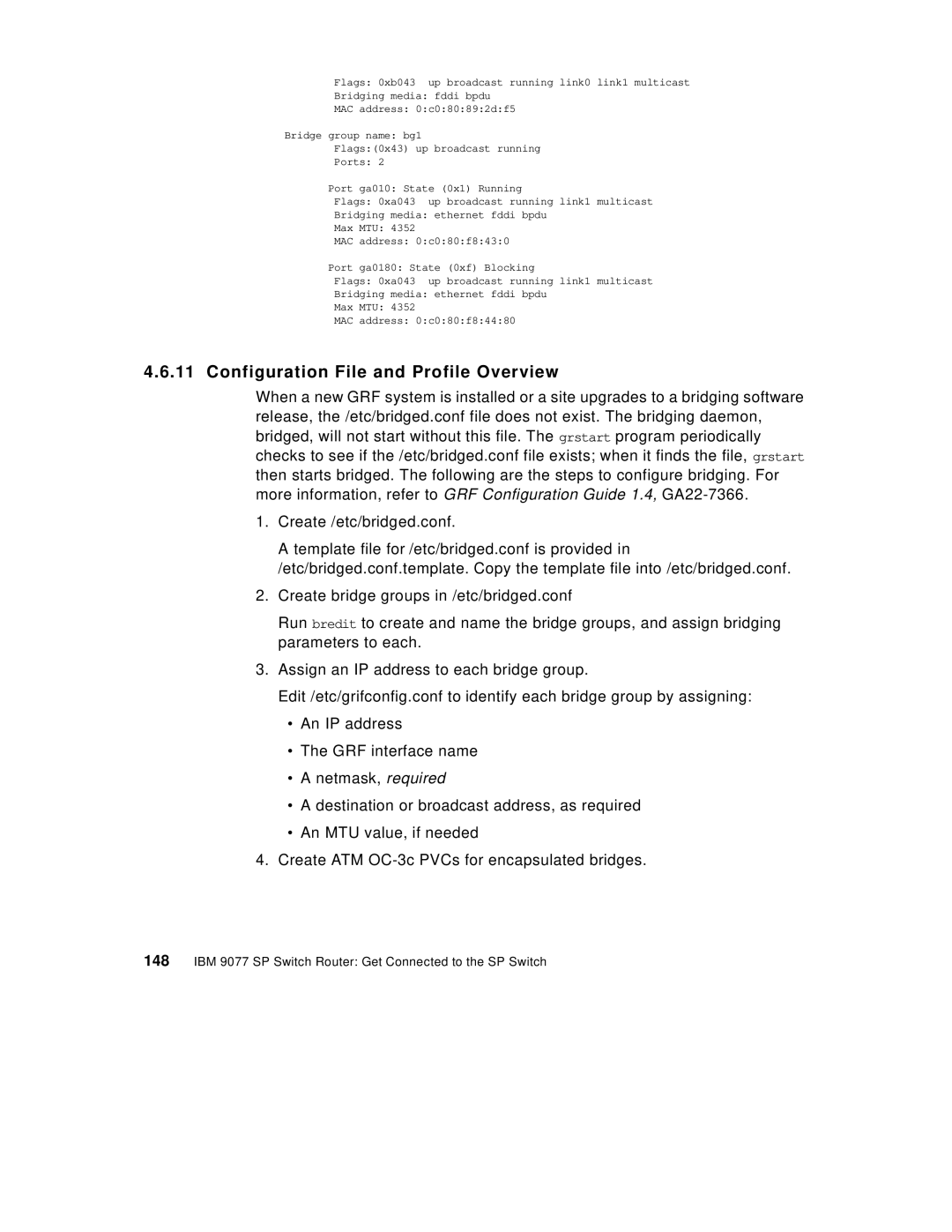Flags: 0xb043 up broadcast running link0 link1 multicast
Bridging media: fddi bpdu
MAC address: 0:c0:80:89:2d:f5
Bridge group name: bg1
Flags:(0x43) up broadcast running
Ports: 2
Port ga010: State (0x1) Running
Flags: 0xa043 up broadcast running link1 multicast
Bridging media: ethernet fddi bpdu
Max MTU: 4352
MAC address: 0:c0:80:f8:43:0
Port ga0180: State (0xf) Blocking
Flags: 0xa043 up broadcast running link1 multicast
Bridging media: ethernet fddi bpdu
Max MTU: 4352
MAC address: 0:c0:80:f8:44:80
4.6.11 Configuration File and Profile Overview
When a new GRF system is installed or a site upgrades to a bridging software release, the /etc/bridged.conf file does not exist. The bridging daemon, bridged, will not start without this file. The grstart program periodically checks to see if the /etc/bridged.conf file exists; when it finds the file, grstart then starts bridged. The following are the steps to configure bridging. For more information, refer to GRF Configuration Guide 1.4,
1.Create /etc/bridged.conf.
A template file for /etc/bridged.conf is provided in /etc/bridged.conf.template. Copy the template file into /etc/bridged.conf.
2.Create bridge groups in /etc/bridged.conf
Run bredit to create and name the bridge groups, and assign bridging parameters to each.
3.Assign an IP address to each bridge group.
Edit /etc/grifconfig.conf to identify each bridge group by assigning:
•An IP address
•The GRF interface name
•A netmask, required
•A destination or broadcast address, as required
•An MTU value, if needed
4.Create ATM
